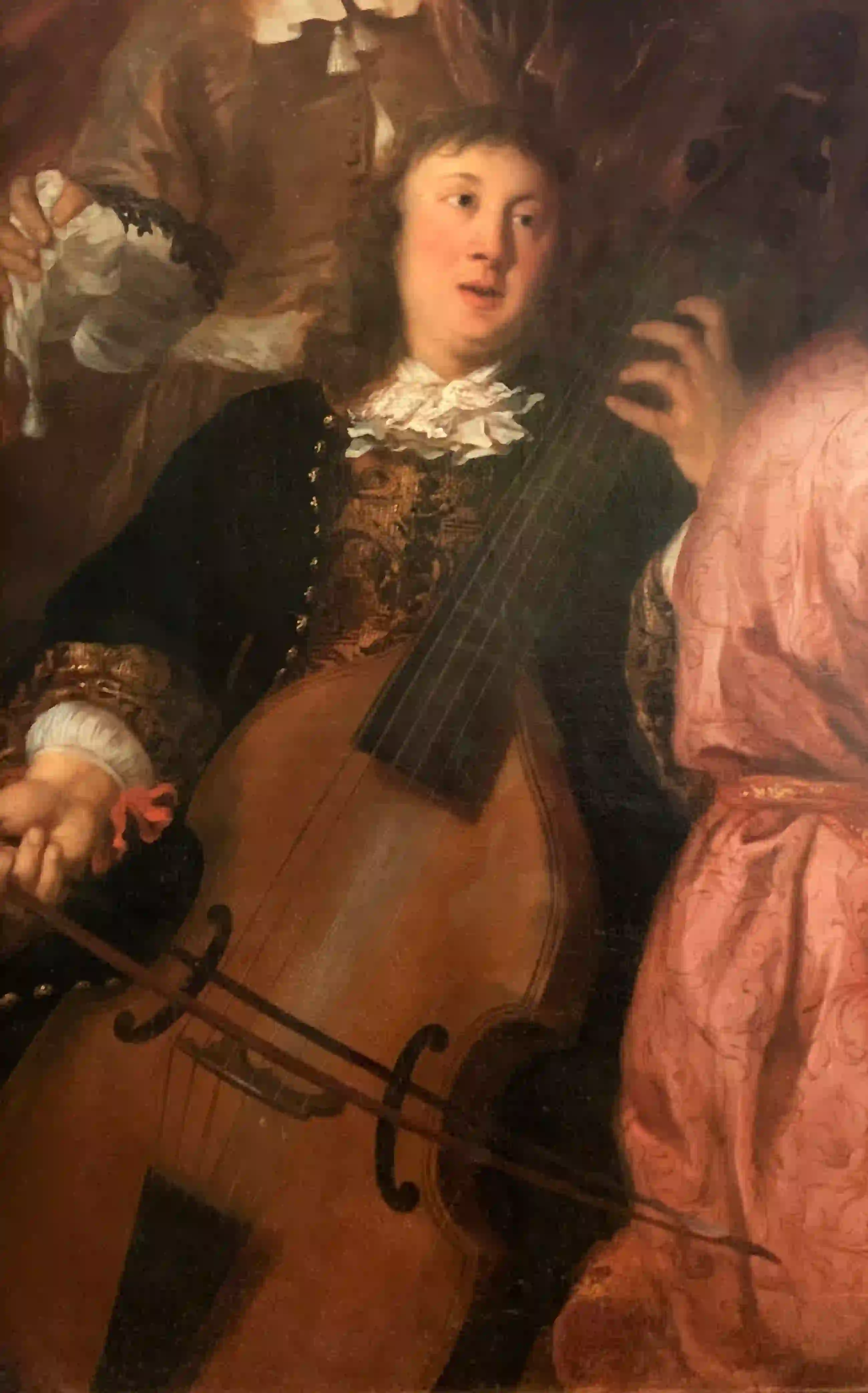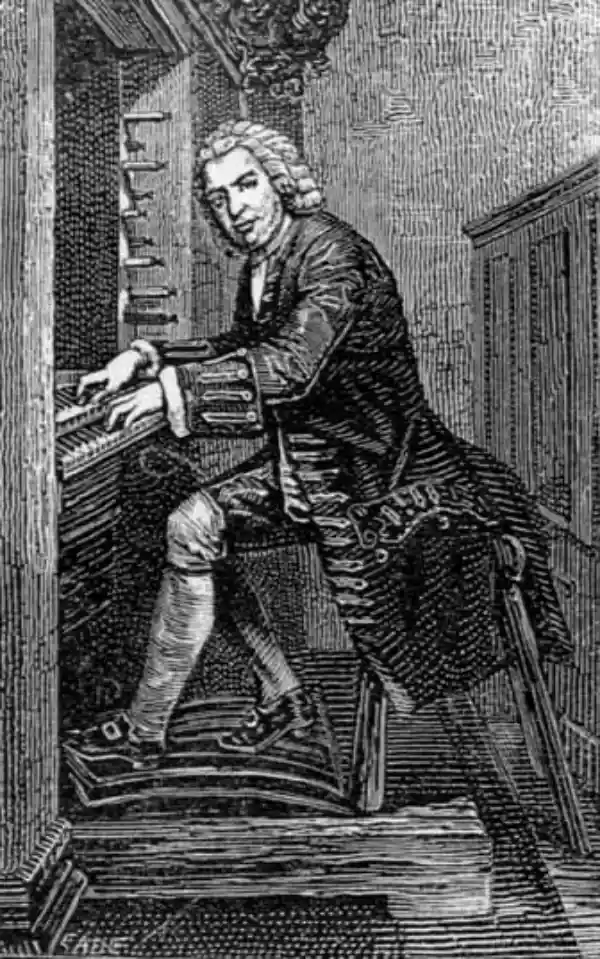Dieterich Buxtehude
Leading the way for church music
World-class organist and composer
On this page

Dieterich Buxtehude
Buried in St Marien
Dieterich Buxtehude is one of the great European musical personalities of the Baroque era. In 1697, the city guide with the illustrious title "Die Beglückte und geschmückte Stadt Lübeck" praised his "Abendmusiken" in St Marien as an event that "happens nowhere else like this." The 60-year-old St Marien's organist was indeed famous far beyond the Holsten Gate of the Hanseatic city. As organist and Werkmeister (secretary/bookkeeper) of St Marien, Buxtehude had taken up a post in Lübeck in 1668 that far surpassed his previous positions in Helsingborg and Helsingør in terms of salary and opportunities for development.
He advanced his virtuoso career like no other North German organist and realised numerous projects that made new, impressive forms of music-making possible without being restricted by liturgical considerations. From 1678, he presented sacred-dramatic works in the "Abendmusiken" ("Evening music"), which his predecessor Franz Tunder had established in Lübeck and which became famous throughout northern Europe.
When the young Johann Sebastian Bach was drawn to Lübeck in the autumn of 1705 "to grasp one thing and another in his art", the multi-faceted musical personality of Buxtehude was the real centre of attraction. During his four decades in Lübeck, the Marienorganist also maintained close contacts with Hamburg, where a number of outstanding composers, organists, cantors and music directors were among his circle of friends and acquaintances, including Johann Adam Reincken, Johann Theile, Christoph Bernhard and Matthias Weckman. The famous "Musizierende Gesellschaft" ("Musical society") by Johannes Voorhout (1674) is an impressive document of these relationships.
In 1703, George Frideric Handel travelled to Lübeck to explore the chances of succeeding him in office. Johann Sebastian Bach (1685-1750) visited Buxtehude at the turn of the year 1705-06 to study his organ playing and possibly also to take part in the famous "Lübeck Evening Music". Dieterich Buxtehude died on 9 May 1707 and was buried in St Marien. He composed 90 works for organ, 21 instrumental sonatas and 125 vocal works.
Bach on Buxtehude
I had a particularly strong urge to hear as much as I could from good organists, so I travelled on foot to Lübek to listen to Diedrich Buxtehuden, the famous organist there at St Marien. I stayed there for almost a quarter of a year, not without benefit, and then returned to Arnstadt.
I had travelled to Lübeck in order to understand one thing and another in his art.
Johann Sebastian Bach
about his "educational leave", which was extended from four weeks to four months



